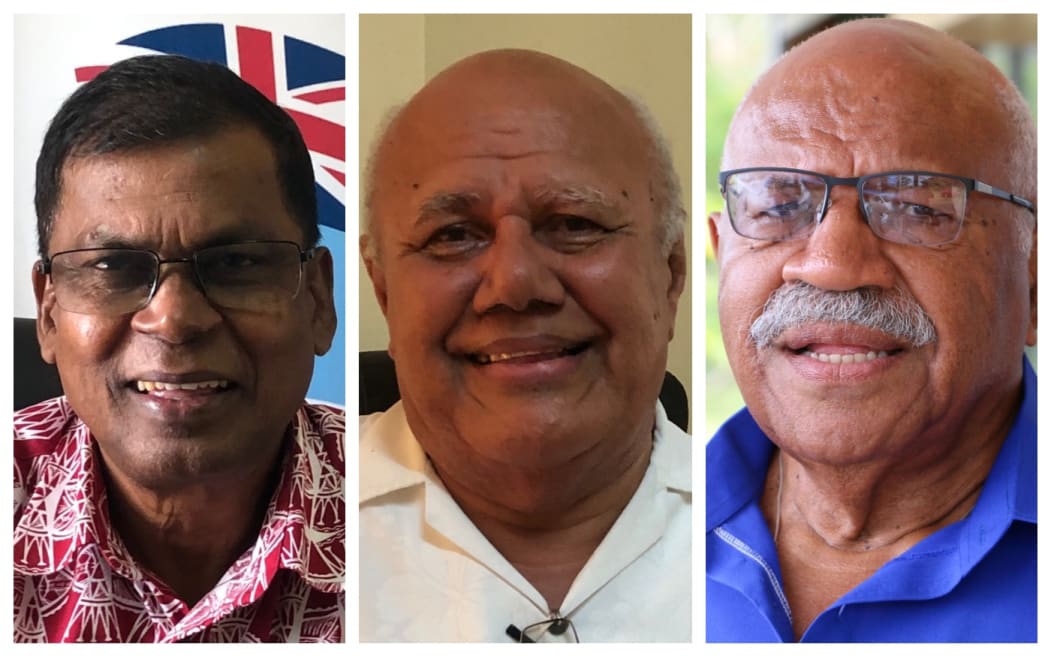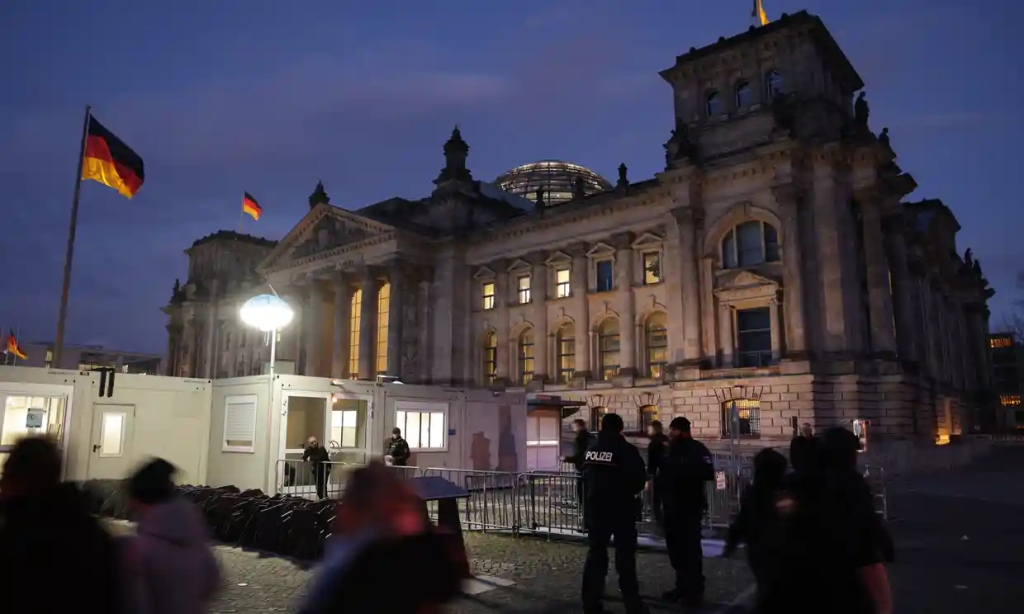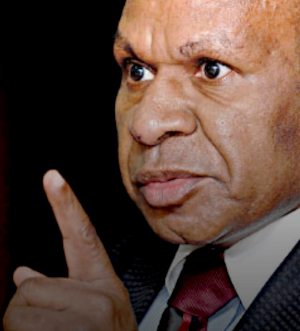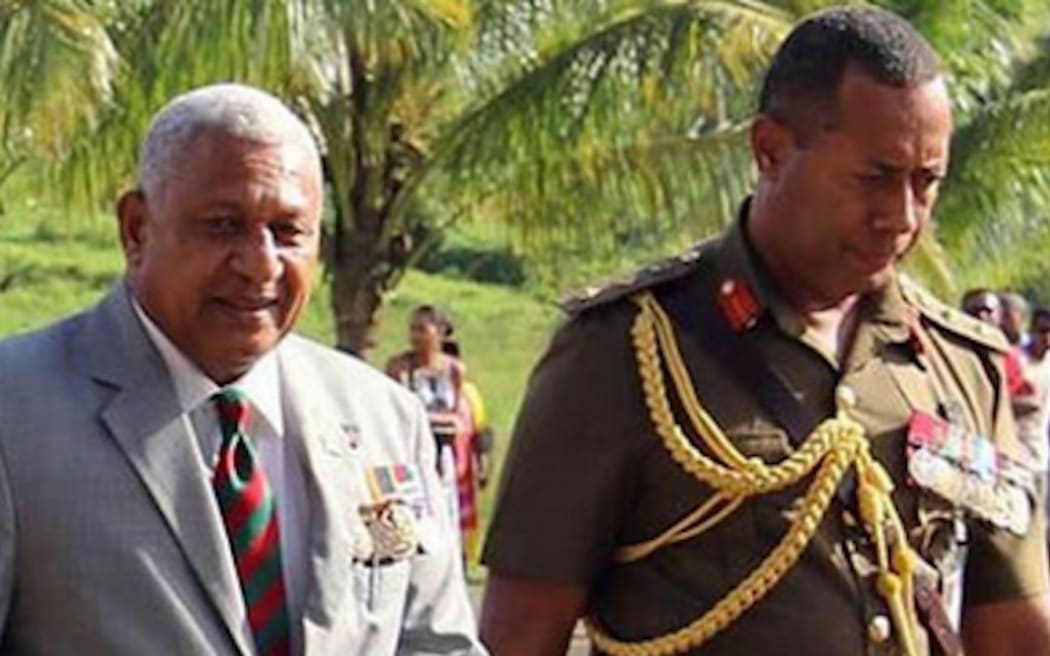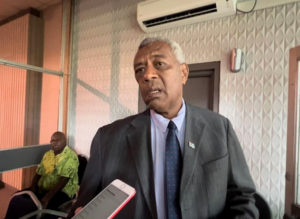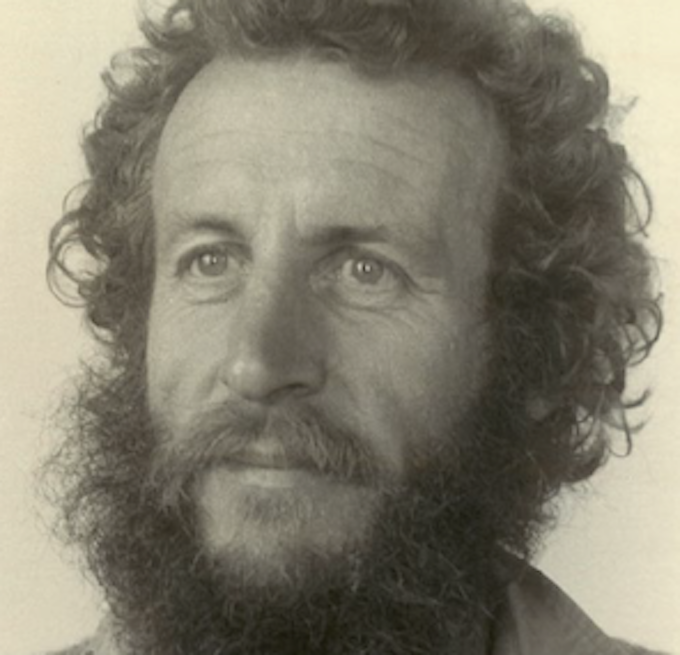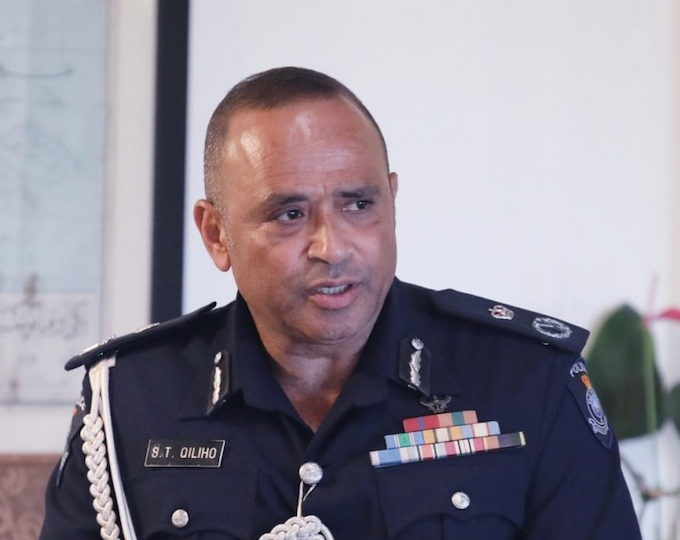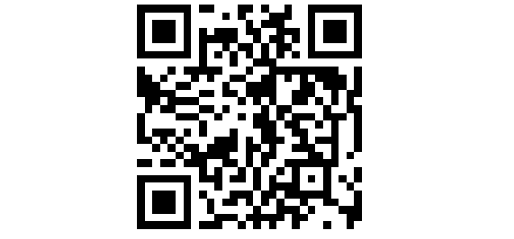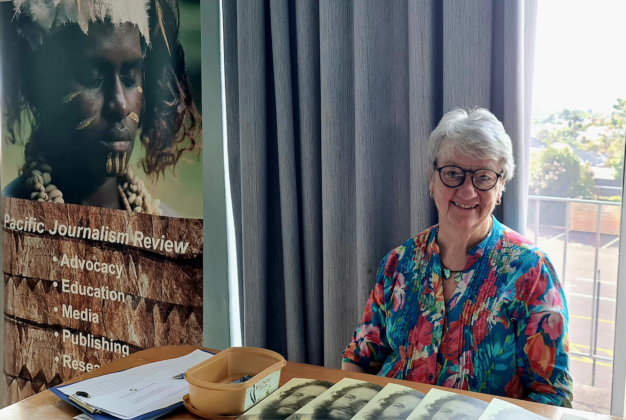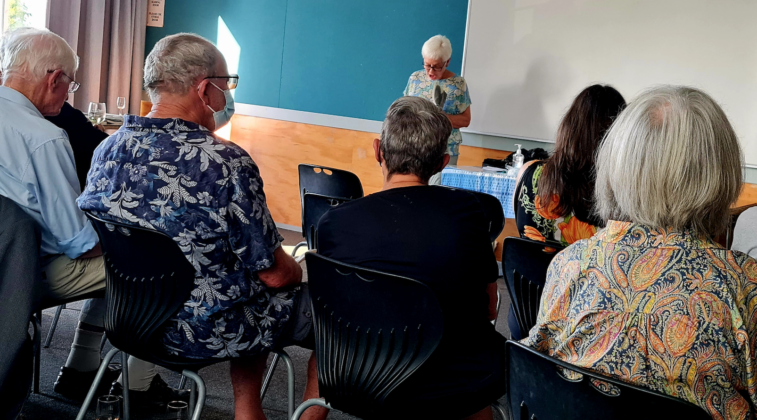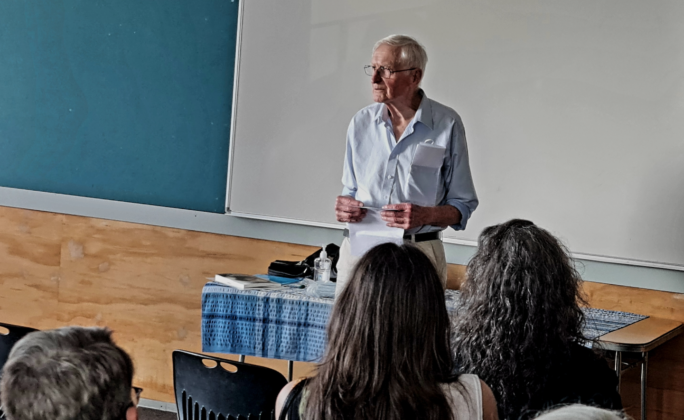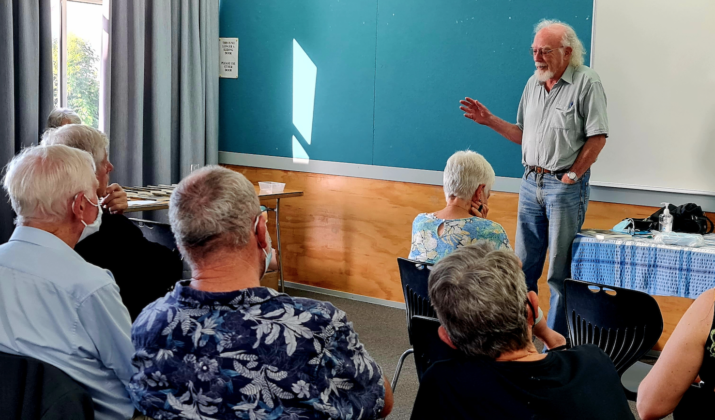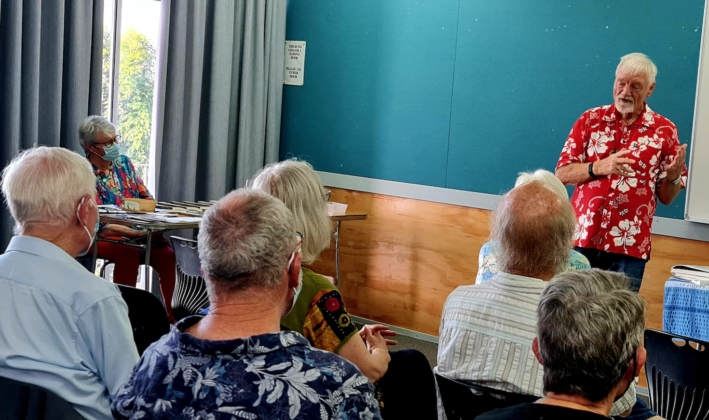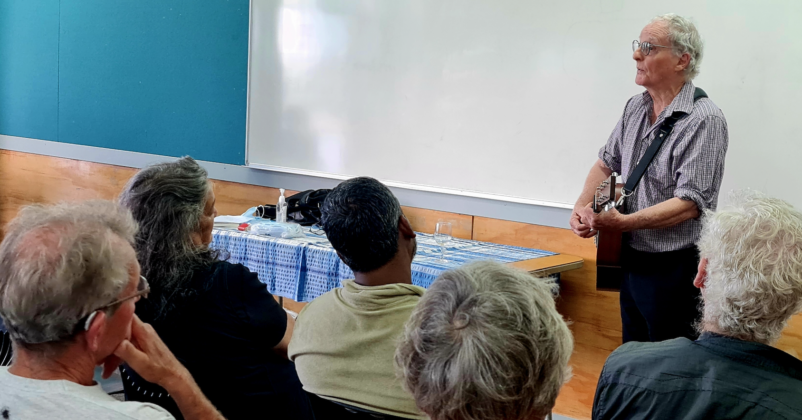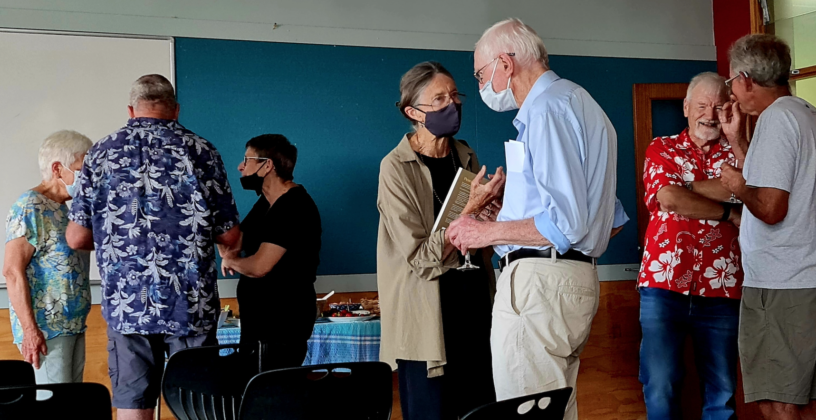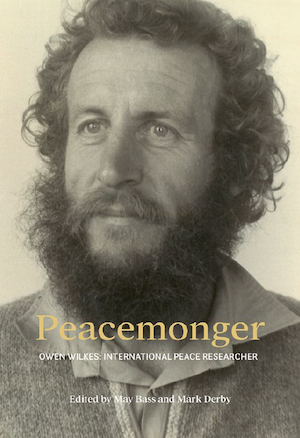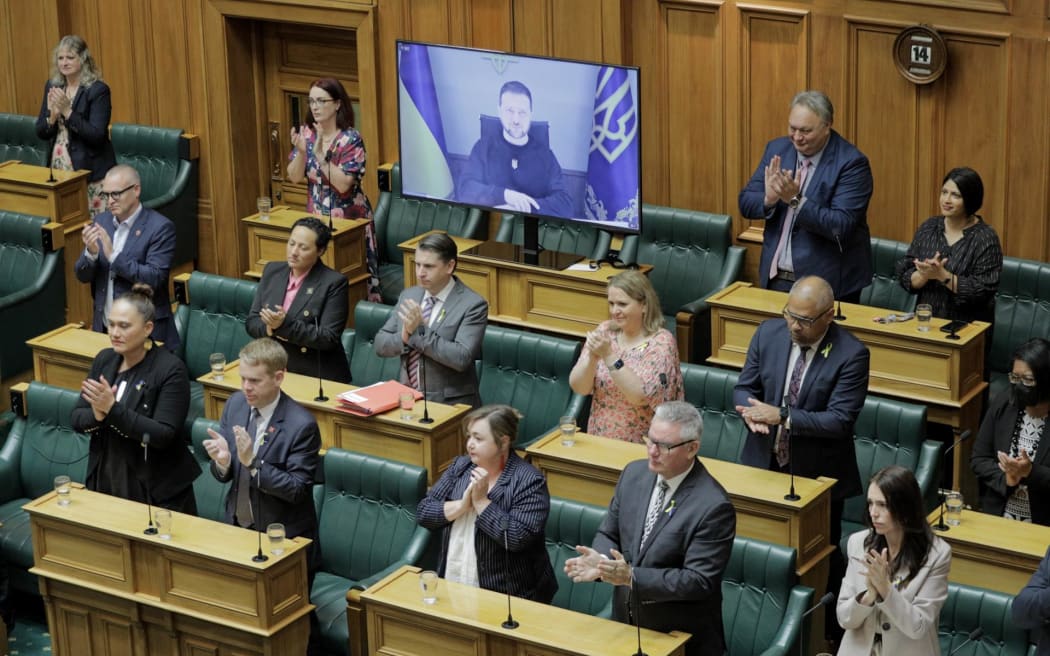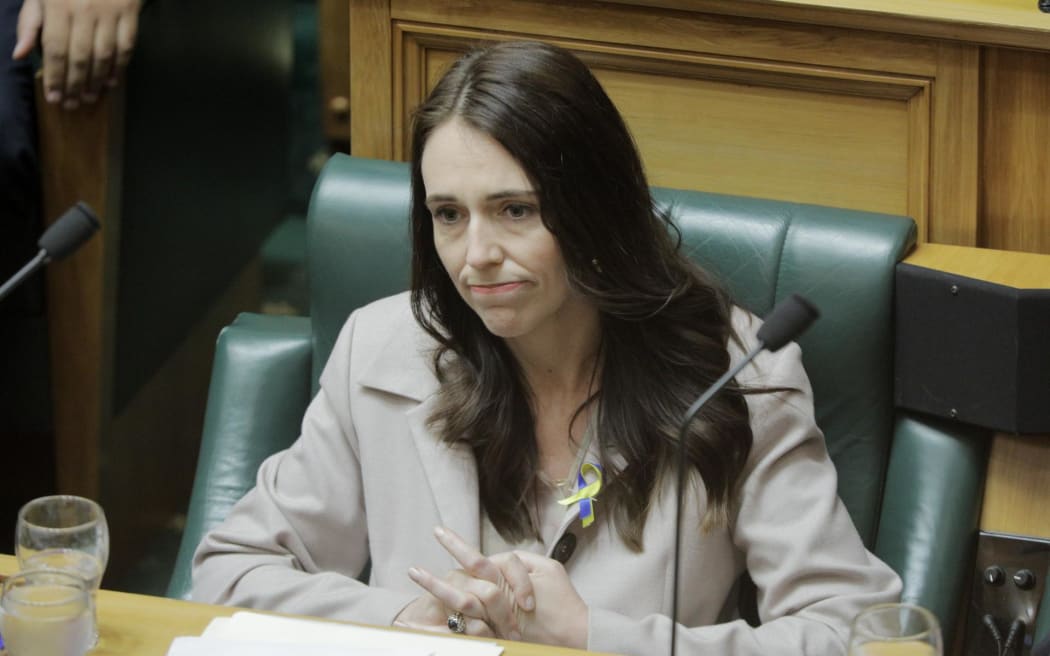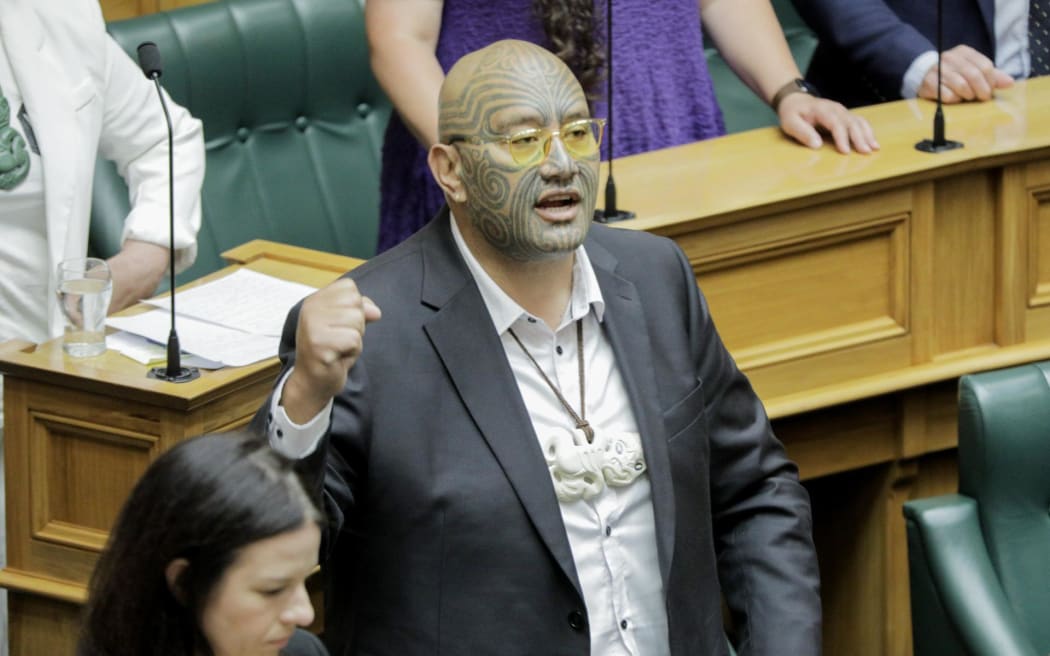by Lynzy Billing, video by Mauricio Rodríguez Pons
1. Prologue
March 2019 • Rodat District, Nangarhar Province
This story contains graphic descriptions and images of war casualties.
On a December night in 2018, Mahzala was jolted awake by a shuddering wave of noise that rattled her family’s small mud house. A trio of helicopters, so unfamiliar that she had no word for them, rapidly descended, kicking up clouds of dust that shimmered in their blinding lights. Men wearing desert camouflage and black masks flooded into the house, corralling her two sons and forcing them out the door.
Mahzala watched as the gunmen questioned Safiullah, 28, and 20-year-old Sabir, before roughly pinning them against a courtyard wall. Then, ignoring their frantic protests of innocence, the masked men put guns to the back of her sons’ heads. One shot. Two. Then a third. Her youngest, “the quiet, gentle one,” was still alive after the first bullet, Mahzala told me, so they shot him again.
Her story finished, Mahzala stared at me intently as if I could somehow explain the loss of her only family. We were in the dim confines of her home, a sliver of light leaking in from the lone window above her. She rubbed at the corner of her eyes; her forehead creased by a pulsing vein. The voices of her sons used to fill their home, she told me. She had no photos of them. No money. And there was no one who would tell her, a widow in her 50s, why these men dropped out of the sky and killed her family or acknowledge what she insisted was a terrible mistake.
But now there was me. I had ended up in Rodat in the heart of Nangarhar province while researching my own family’s story of loss in this desolate rural region in eastern Afghanistan.
Mahzala’s neighbors had pressed me to meet her; I was a foreigner, I must be able to help. Three months had passed since the raid. The neighbors believed it was the work of the feared Zero Units — squadrons of U.S.-trained Afghan special forces soldiers. Two more homes in the area were targeted that night, they said, though no one else was killed. Everyone acknowledged the Taliban had been in the area before; they were everywhere in Nangarhar province. But Mahzala’s sons? They were just farmers, the neighbors told me.
Dusk in Nangarhar province
(Lynzy Billing for ProPublica)
That trip was the first time I’d heard of the secretive units, which I’d soon learn were funded, trained and armed by the CIA to go after targets believed to be a threat to the United States. There was something else: The Afghan soldiers weren’t alone on the raids; U.S. special operations forces soldiers working with the CIA often joined them. It was a “classified” war, I’d later discover, with the lines of accountability so obscured that no one had to answer publicly for operations that went wrong.
Back in Kabul, I tried to continue my personal hunt, but Mahzala’s story had changed the trajectory of my journey. Her words and her face, with its deep-set wrinkles that mirrored the unforgiving landscape, lingered in my thoughts. Who were these soldiers? And what were they doing in remote farming villages in Afghanistan executing young men under the cover of night? Did anyone know why they were being killed?
As a journalist, I knew that Afghanistan’s story was most often told by outsiders, by reporters with little cause to explore barren corners like Rodat. Far from the world’s eyes, this story felt like it was being buried in real time. It was clear no one would be coming to question what happened that night or to relieve Mahzala’s torment.
Mahzala’s sons’ lives, it seemed, were being shrugged away, without acknowledgement or investigation, disappearing into the United States’ long war in Afghanistan. I began to focus on a basic question: How many more Mahzalas were there?
As I write this today, America’s war in Afghanistan is already being consigned to history, pushed from the world’s consciousness by humanity’s latest round of inhumanity. But there are lessons to be learned from the West’s failures in Afghanistan. Other reporters, notably at The New York Times, have documented the cover-up of casualties from aerial bombardment and the drone war in Iraq, Syria and Afghanistan. This story is a deep look inside what happened after America embraced the strategy of night raids — quick, brutal operations that went wrong far more often than the U.S. has acknowledged.
As one U.S. Army Ranger ruefully told me after the Taliban’s triumph last year: “You go on night raids, make more enemies, then you gotta go on more night raids for the more enemies you now have to kill.”
2. Getting Started
May 2019 • Kabul
Although I hadn’t revealed it to Mahzala, I’d come to Afghanistan hoping to answer questions similar to her own.
Like Mahzala, I’m from Afghanistan. People call me “lucky” because I was adopted by a British family running a school across the border in Pakistan. At age 12, I moved with them to Israel and then on to England, where I attended university and later became a journalist. I had a few traces of my Afghan and Pakistani origins: a couple photographs of my biological mother — a Pakistani, young and lovely with hands like my own — a newspaper clipping advertising me, an orphan girl, for adoption and a few other scraps of information. But really, I had nothing.
I’d returned to Afghanistan as an adult, and with plans to also go to Pakistan, to investigate my past: Who were my birth parents? And what had happened to them? I was spurred by a mix of emotions from curiosity to a desire for closure.
Thirty years earlier, when I was 2, my mother, a refugee to Afghanistan, and younger sister were killed in a nighttime raid in the very same district as Mahzala’s sons — long before the Americans arrived. Like her, I also had no answers. A distant relative told me that my Afghan father was likely the intended target of the attack. He would be killed two years later during the increasingly violent civil conflict, but the people who murdered my mother and sister would never be held to account. One war bled into the next, and one family’s story of loss was replaced by another’s.
Lynzy Billing’s biological mother
(Courtesy of Lynzy Billing)
Trauma, I’ve learned, creates a rippling pool; its ravages spread to unseen edges. After I was adopted, I underwent numerous medical and psychological assessments. One declared that I’d had a “neurological insult” likely from an incident of trauma to the brain. I have no idea when or with what I was hit. The doctors observed that I had an “abnormal gait” that stymied my ability to run and a string of learning disabilities that affected my speech and my ability to interact with others. Doctors suggested that my adoptive father slowly push me on a swing to introduce me to movement. But I’d shut down and go rigid or, with white knuckles gripping the swing, scream.
My adoptive father recalls some friends suggesting that I “had demons and wouldn’t be at rest until they were cast out.”
Even as my physical and psychological ailments faded, questions of my origins taunted me. My personality and interests didn’t match those of my adoptive sisters. I was hardheaded, self-contained and struggled to show affection toward the people I loved. I had difficulty expressing my thoughts and feelings. Friends would ask me why I made things so difficult for myself. I didn’t have an answer.
I was middle of the road in most things in school and struggled to find my place among sisters who excelled academically and athletically. Although I did indeed feel “lucky,” I also felt an overwhelming pressure to make the most of the opportunities I’d been given.
In truth, I never felt British, Afghan or Pakistani. I tried to hire private investigators to find my birth parents. A slick businessman in a dodgy one-room London office above a bakery laughed off my request. A beefy man in hobnail cowboy boots met me at a swanky hotel in Dubai, then said he was reluctant to take on such a small but difficult job. No one was interested in digging around in a country at war.
And so I set out to Jalalabad to do it myself.
Billing traveling through Nangarhar province in eastern Afghanistan, first image. Achin district, Nangarhar province.
(Kern Hendricks for ProPublica)
I learned from my conversation with Mahzala that the violence that tore apart my family had continued as Afghanistan lurched from civil war to a grinding conflict between the U.S. and the Taliban, al-Qaida and later ISKP (Islamic State Khorasan Province, the Afghan offshoot of the Islamic State). As I made calls and sifted through local news reports, my focus shifted from exploring my personal story to something else.
Over the next three and a half years, I did what it appeared that no one else was doing — nor will be able to do again — I tracked what the U.S.-trained and sponsored squads were doing on the ground, concealed from most of the world.
I cataloged hundreds of night raids by one of the four Zero Unit squads, which was known in Afghanistan as 02 unit, eventually identifying at least 452 civilians killed in its raids over four years. I crisscrossed hundreds of miles of Nangarhar interviewing survivors, eyewitnesses, doctors and elders in villages seldom, if ever, visited by reporters. The circumstances of the civilian deaths were rarely clear. But the grieving families I spoke to in these remote communities were united in their rage at the Americans and the U.S.-backed Kabul government.
My pursuit would take me from the palatial Kabul home of the former head of Afghanistan’s spy agency to clandestine meetings with two Zero Unit soldiers who were ambivalent about their role in America’s war. It would lead me back to the United States, where I met an Army Ranger in a diner in a bland middle American city. Over breakfast, he casually described how American analysts calculated “slants” for each operation — how many women/children/noncombatants were at risk if the raid went awry. Those forecasts were often wildly off, he acknowledged, yet no one seemed to really care.
My reporting showed that even the raids that did end in the capture or killing of known militants frequently also involved civilian casualties. Far too often, I found the Zero Unit soldiers acted on flawed intelligence and mowed down men, women and children, some as young as 2, who had no discernible connection to terrorist groups.
And the U.S. responsibility for the Zero Unit operations is quietly muddied because of a legal carve-out that allows the CIA — and any U.S. soldiers lent to the agency for the operations — to act without the same oversight as the American military.
The CIA declined to answer my questions about the Zero Units on the record. In a statement, CIA spokesperson Tammy Thorp said, “As a rule, the U.S. takes extraordinary measures — beyond those mandated by law — to reduce civilian casualties in armed conflict, and treats any claim of human rights abuses with the utmost seriousness.”
She said any allegations of human rights abuses by a “foreign partner” are reviewed and, if valid, the CIA and “other elements of the U.S. government take concrete steps, including providing training on applicable law and best practices, or if necessary terminating assistance or the relationship.” Thorp said the Zero Units had been the target of a systematic propaganda campaign designed to discredit them because “of the threat they posed to Taliban rule.”
Forward Operating Base Fenty in Jalalabad, Nangarhar province, in 2019, when it was the headquarters for the 02 unit
(Kern Hendricks for ProPublica)
My reporting, based on interviews with scores of eyewitnesses and with the Afghan soldiers who carried out the raids, shows that the American government has scant basis for believing it has a full picture of the Zero Units’ performance. Again and again, I spoke with Afghans who had never shared their stories with anyone. Congressional officials concerned about the CIA’s operations in Afghanistan said they were startled by the civilian death toll I documented.
As my notebooks filled, I came to realize that I was compiling an eyewitness account of a particularly ignominious chapter in the United States’ fraught record of overseas interventions.
Without a true reckoning of what happened in Afghanistan, it became clear the U.S. could easily deploy the same failed tactics in some new country against some new threat.
3. Visiting the Raids
May – October 2019 • Nangarhar Province
When I conceived this investigation, I knew if I was going to track the dead, I’d need some help. I met Muhammad Rehman Shirzad, a 34-year-old forensic pathologist from Nangarhar.
As a government employee, Shirzad had access to official records to verify the identities of those killed. But helping me was a risk. Nevertheless, he was keen to join. “We have to share the truth,” he told me. We began building a database of alleged civilian casualties and hit the road.
Muhammad Rehman Shirzad, a forensic pathologist from Nangarhar, helped build a database of alleged civilian casualties.
(Lynzy Billing for ProPublica)
In the late spring of 2019, the trail led to the basement office of Lutfur Rahman, 28, former university professor who’d found himself unexpectedly chronicling the stories of Zero Unit survivors. He’d taught literature but had also acted as a counselor to young men with no one else to talk to.
“Nangarhar is the most restless province,” Rahman said. “They witness these raids every day.” He handed me a beat-up notebook. Inside were 14 stories of deadly Zero Unit raids that his students had described to him over two years.
We’d just started talking when Rahman got a call from a professor at the University of Nangarhar who said one of his students had missed classes for several days and then returned distracted and distressed, saying there’d been “an incident.”
A few days later, I found Batour, 22, in the university’s science lab, sitting sandwiched between plastic models of dissected human bodies. Slight, disheveled and with wild eyes, he looked lost. I suggested that we move to the privacy of the roof. He didn’t have to talk to me, I said. “It’s OK,” he said, then took a deep breath and cocked his chin, as if bracing for a blow.
They came a week earlier, on April 26. “It was a normal Thursday,” Batour said. He and his brothers prayed at the mosque and then returned to their home in Qelegho in Khogyani district. As Batour spoke, his skinny ankles swayed back and forth, not quite reaching the ground.
Around 9 p.m., he said, the 02 soldiers descended from helicopters and he knew a raid had started. They hit four houses before reaching his home hours later and “blew up the door.”
A soldier with a megaphone announced: “Your house is surrounded. Come out.” Inside, soldiers were asking everyone: “What is your name? What do you do?”
Batour and his father were led out of the house while his two brothers remained inside.
Two soldiers were speaking in English, he said, but there was a man with them translating their words into Pashto. Batour told them he was a student at the university and gave them his university ID. The soldiers checked his name against a list, he said, then ordered him to sit under a tree. As long as the planes are circling above, they told him, do not move.
Batour, 22, witnessed the raid in which two of his brothers were killed.
(Kern Hendricks for ProPublica)
Batour paused and stared at his hand, flexing his fingers.
“My back was to the house and I don’t know how long I was sitting there,” he said quietly, but that’s when he heard the sound of firing. “It was just like pop-pops, so it was silenced guns.” Batour heard the helicopters take off. “Immediately my father ran to the house screaming, but I couldn’t hear him. I ran after him. My father said: ‘Come on. They are finished.’”
They found his two brothers dead. They’d been shot many times.
That night, 11 people were killed including Batour’s brothers: Sehatullah, 28, a teacher at a secondary school in Khogyani district, left behind a wife and three young sons, and Khalid Hemat, 26, who went to university with Batour, had married just four months earlier.
Khalid, first image, and Sehatullah, Batour’s brothers, were killed in a night raid.
(Photographs courtesy of Batour)
The following day, Batour heard the local radio station announce that teachers from a government school were killed in the raid by the 02 unit. There was no mention that insurgents had been successfully eliminated.
“While my brothers were alive, I was free to study. But now they are gone; no one is here to support me. My lessons are left half-completed.” He told me he can’t concentrate and has nightmares about the night of the raid, but his family can’t afford to move from the village. “We still don’t know the reason my brothers were slaughtered.”
Batour believes the Zero Unit strategy had actually made enemies of families like his. He said his brothers had both supported the government and he did, too, vowing never to join the Taliban. Now, he said, he’s not so sure. As Batour spoke, something round and black dropped onto the roof by his feet. He briefly cowered, before realizing it was a taped-up black cricket ball that soared up from the ground floor. After a moment he exhaled. It’s as if he’d forgotten to breathe the whole time we were talking.
As Batour told me his story, I heard echoes of the other witnesses I had spoken to about the psychological toll of the raids. As long as most of them could remember, the country had been racked by violence. The hum of drones, the whirr of helicopters and the deafening blasts of suicide bombings and missile strikes had scarred the land and seeped into daily life.
Kurdish-German psychologist Jan Ilhan Kizilhan trains psychologists who specialize in trauma to work with war victims in Iraq and Syria. He told me that in Afghanistan trauma has become an inescapable legacy. “They experience past trauma again and again as if it is immediate,” he said. “The repetition reinforces these experiences many times over, keeping them alive for numerous future generations.”
A raid in Qala Sheikh village in Chaparhar district left five teachers dead and a trail of destruction.
(Photograph courtesy of Abdul Rahim)
At the more than 30 raid sites Shirzad and I visited, we were often greeted with surprise, particularly by women, who had seldom been asked about what they’d seen and, if they were victims, sometimes not mentioned. One 60-year-old woman told me that after her three sons and son-in-law were killed in a July 2019 night raid, she simply washed, shrouded and buried them. At the provincial governor’s office, she was told that the 02 conducted the operation and “it was a mistake.”
“Not once did I think I had any other options, that any Afghan official, court or anyone would believe me,” she said.
In Qala Sheikh village in Chaparhar district, more than a dozen people witnessed Zero Unit soldiers shoot five teachers in their homes, leaving behind the blackened shell of one home with two burned bodies inside.
The 02 unit later said it carried out the raid in a statement, announcing that the men were ISKP members — a claim Abdul Rahim, who saw his brother and nephews burning in the fire, denied. “If they were ISIS, why didn’t they arrest them in the city where they teach at government schools?” Rahim said that October. “It’s the obligation of the Afghan government to ask this unit why they are killing civilians.”
Rahim told me that a presidential delegation had traveled to Jalalabad, ostensibly to investigate the raid, but it never came to Qala Sheikh or spoke to witnesses or the doctors who treated his brother’s injuries before he died.
4. A Failed Strategy
1967 – Present Day
U.S. military and intelligence agencies have long used night raids by forces like the 02 to fight insurgencies and since the Vietnam War have defended the tactic, arguing that the raids are less likely to cause civilian casualties than aerial bombing.
But even a cursory review of U.S. military history raises serious questions about the operations, especially in places like Afghanistan, which is defined by deep tribal loyalties and where the high civilian death toll has, time and again, turned people against the United States and the local government it supported.
In 1967, the CIA’s Phoenix Program famously used kill-capture raids against the Viet Cong insurgency in south Vietnam, creating an intense public blowback. William Colby, then-CIA executive director and former chief of the Saigon station, conceded to Congress in 1971 that it wasn’t possible to differentiate with certainty between enemy insurgents or people who were neutral or even allies.
Despite the program’s ignominious reputation — a 1971 Pentagon study found only 3% of those killed or captured were full or probationary Viet Cong members above the district level — it appears to have served as a blueprint for future night raid operations.
The U.S. used night raids against al-Qaida in Iraq, under Gen. David Petraeus and Gen. Stanley McChrystal. Military officials said many of the operations killed or captured their targets. But it’s impossible to determine how often the intelligence was wrong, or misguided, and civilians paid the price. As in Afghanistan, complete casualty data has remained either classified, unavailable or untracked.
Gen. Stanley McChrystal, at right in first image, and Gen. David Petraeus, second image
(First image: Manan Vatsyayana/Stringer/Getty Images. Second image: Chris Hondros/Getty Images.)
When McChrystal took over operations in Afghanistan in June 2009, he declared that Afghan officials would now take part in the planning and execution of the raids, but he also accelerated them. As in Iraq, the raids were met with protests, and former President Hamid Karzai repeatedly called for them to be banned.
The raids, along with drone strikes, were part of America’s vast counterterrorism apparatus known as the “kill-capture program.” When Petraeus replaced McChrystal in Afghanistan, he expanded the program and in 2010 released figures to the media claiming spectacular success — thousands of al-Qaida and Taliban leaders captured or killed.
In a subsequent press conference, a U.S. admiral revealed that more than 80% of those captured “terrorists” were released within weeks because there wasn’t supportable evidence that they were insurgents. And the raids seemed counterproductive: as they ramped up, so did the insurgent attacks.
Petraeus and McChrystal declined to answer questions for this story.
Meanwhile, the CIA was separately funding, training and equipping its own series of paramilitary forces in Afghanistan. The Zero Units were officially established around 2008, according to Afghan officials and soldiers, and modeled on U.S. special operations forces like the Navy SEALs. Regionally based and staffed by local soldiers, the units were sometimes accompanied by CIA advisers, transported by American helicopters and aided by armed support aircraft.
Afghan forces conducted nighttime operations in 2019.
(Kern Hendricks for ProPublica)
Sandwiched between bomb blasts and attacks on government institutions by insurgents, the Zero Units, whose members are estimated to be in the thousands, received scant scrutiny until 2013. Under the Trump administration, CIA Director Mike Pompeo announced that the agency was ramping up its approach in Afghanistan: “The CIA, to be successful, must be aggressive, vicious, unforgiving, relentless — you pick the word.”
The following year, in 2018, The New York Times published a report about the 02 unit using brutal tactics to terrorize Afghans. In October 2019, Human Rights Watch documented 14 cases — some amounting to war crimes — involving the 02 unit and other CIA-backed strike forces. In 2020, The Intercept reported on 10 night raids by another Zero Unit, 01, that targeted religious schools.
While the stories described deadly raids, not much was said about why the intelligence guiding them was often flawed. It appeared to be a pattern that went hand in hand with the night raid strategy. I spoke with two self-proclaimed “geeks” who helped build or operate spy technology during the peak years of war. They said failure was predictable, despite the huge advances in technical intelligence. The most cutting-edge equipment in the world, they said, didn’t make up for the deficits in understanding “the enemy” by the Americans processing the intelligence.
Lisa Ling spent 20 years in the military and built technology that was ultimately used to process intelligence that targeted Afghans. “I understand very viscerally how this tech works and how people are using it,” she said. The counterterrorism mission is essentially: “Who am I fighting, and where will I find them,” she said. But the U.S. struggled to differentiate combatants from civilians, she said, because it never understood Afghanistan.
Her thoughts echoed what I’d heard from Afghan intelligence officials. “Every gun-wielding guy in this country is not a Talib because people in rural Afghanistan carry guns,” said Tamim Asey, former deputy minister of defense and Afghan National Security Council director general.
In Afghanistan, Air Force technician Cian Westmoreland built and maintained the communications relays that underpinned America’s drone program. His grandfather’s distant cousin was Gen. William Westmoreland, a key architect of the night raid operations in Vietnam. His father was a technical sergeant and, Cian said, “ordered the missile parts for the initial bombing of Afghanistan.”
It became clear to Westmoreland that civilian casualty reports from the drone strikes sent up the chain of command were inaccurate. “Unless there are operators physically checking body parts on the ground, they have no idea how many civilians were killed,” he said. “And they have no idea how many ‘enemies’ they actually got.”
Achin district in Nangarhar province
(Kern Hendricks for ProPublica)
When he finished his deployment in 2010, Westmoreland says he was handed his evaluation, stating that he’d assisted on 200-plus enemy kills in five months. He ran to the bathroom, he said, and threw up. “How many is the plus? Who is counting? And who knows who was killed?”
A source familiar with the Zero Unit program said it “stayed in close contact with a network of tribal elders,” who alerted program officials when civilians were killed. Any such deaths, the source said, were “unintended.”
At times, Westmoreland said, bystanders paid the price simply because they were near a suspected target’s cellphone.
Speaking with them, it became clear that the language of the intelligence world itself could hide its weaknesses. Ling said that when intelligence officers cite “multiple sources” of intelligence to justify an operation, it doesn’t necessarily mean they have confirmatory information. It could simply mean that they have an overhead image of a house and an informant telling them who’s inside.
5. The Zero Unit Soldiers
October 2019 • Kabul
For six months, I pursued the most elusive perspective on the U.S. night raid strategy — the Zero Unit soldiers themselves; the men killing their own compatriots on U.S. orders.
In October 2019, two men whom I’ll call Baseer and Hadi finally agreed to meet me. Both in their mid-30s, they were friends, fathers and comrades-in-arms. Hardened by violence and the isolation of the Zero Units, they were initially baffled by my interest, not just because they feared discovery. Why would I want to talk to killers? They decided to speak, they said, because of their unease with missions gone awry — and their distrust of the motives of those directing the attacks. I agreed to protect their identities.
Baseer and Hadi describe their work in one of the Zero Units in a scene from a ProPublica documentary coming in 2023.
(Illustration and animation by Mauricio Rodríguez Pons/ProPublica. Field production by Lynzy Billing, Muhammad Rehman Shirzad and Kern Hendricks for ProPublica. Music by Milad Yousufi for ProPublica.)
Watch video ➜
“They are Americans killing Afghans, and we are Afghans killing Afghans,” Baseer told me. “But I know the Americans do not lie awake at night with the guilt I have.”
Clouds of cigarette smoke swirled through shafts of sunlight in the dimly lit backroom of a quiet fish restaurant on the outskirts of Kabul where we finally met. Outside, the day’s first light paled into a gray glare glinting off gridlocked cars waiting to pass through fortified checkpoints into the capital.
Baseer sat cross-legged on the well-worn carpet, balancing a cellphone on each knee and grasping a cup of green tea between his jeweled fingers. His neat mustache caught a bead of sweat as it dripped from his brow. His impeccable grooming was at odds with the mismatched socks peeking from beneath his shalwar kameez.
He took a long drag on his cigarette, and I noticed finger-sized bruises stretching around his neck. Although he caught me looking at the bruises, he made no effort to explain them. He rolled his neck from side to side to loosen kinks and rubbed his hands together. He was eager to talk.
Baseer during one of his first interviews with Billing in Kabul in 2019. He and a friend decided to speak about serving in a Zero Unit, they said, because of their unease with missions gone awry.
(Kern Hendricks for ProPublica)
Sitting off to one side, Hadi wore a leather bomber jacket (“like Top Gun”) that dwarfs his wiry frame. It was 80 degrees, but Hadi only removed his beanie briefly, to absently rub a long, silvery scar that stretched across the top of his head. He was wary and toyed nervously with the gold watch that hung from his skinny wrist. His eyes darted to the door at every hint of movement.
According to Baseer, Hadi is the joker of the two. He squeezed his friend’s shoulder reassuringly, grinning at him. “Don’t worry, she’s not American,” he said in Pashto. In an attempt to reassure them, I tell them I am English, not American, and of Afghan and Pakistani descent. Hadi smiled weakly, but it was clear he was unconvinced.
Both soldiers had obtained leave passes under false pretenses to meet me. The relationship between journalist and soldier seemed to offer them a space where they could discuss their actions — even boast about them when marveling at their superior training and autonomy — because I think they knew I wasn’t going to turn them in or use their stories as leverage.
Baseer’s family had left Afghanistan when he was 3, during the same fractious conflict that killed my own family. Eventually, his family settled in a refugee camp in Peshawar in Pakistan. Growing up, he considered both the Americans and the Soviets infidels, but he later came to realize that the Taliban have their own cruelties.
When he returned to Afghanistan at age 16, he lived in yet another refugee camp. “I wanted to be a politician, but there were no jobs.” Baseer eventually became a bodyguard for his father, a police officer, before signing on with the police as well. The poor pay pushed him to join the military and then the 02 unit in late 2016, where he said he was paid about $700 per month in American currency — more than three times what regular soldiers made. He also received eight months of training from Turkish and American soldiers at several locations in Afghanistan. “The 02 had the weapons and power, and I liked the idea of duty related to operations and fighting,” he said.
Hadi transferred to the 02 from the Afghan commandos in 2017. “It was my dream to join ‘the Infamous Zero Unit,’” he said. “I thought I would be part of building and securing a new Afghanistan, and as the Americans say,” Hadi briefly switched to English, with an American twang: “‘blast them out of their holes’ and ‘send them to hell.’ I wanted to get the bad guys.” He paused. “At first, the thrill was intense. But the job wasn’t this clear in the end. You know, I became the bad guy, or maybe I wanted to be the bad guy all along.” He looked away, fingering a frayed edge of the carpet.
Once in the units, the men said, it often seemed like they weren’t fighting Afghanistan’s battle at all. The CIA, with the aid of American soldiers on the ground, they said, ran the show. “They point out the targets and we hit them,” Baseer said, adding that about 80 soldiers go on a raid and “10 Americans, sometimes 12, join every operation.”
“After we return to base, we count how many soldiers were lost,” he said. Many Afghan soldiers have been killed, but not Americans: “They are out of the war.”
6. The Raid
December 2019 • Kamal Khel, Logar Province
Over the weeks, Baseer, Hadi and a third Zero Unit soldier, Qadeer, updated me on their raids. They showed me chaotic videos they’d kept on their phones. Baseer had been keeping a diary, and he began sharing extracts with me.
At first, he gave me simple reflections: the time he stole the car keys for a joy ride or when they played volleyball and watched Bollywood movies with the Americans at their base. But over time, he began to share stark excerpts that showed he was keeping a count of those killed. One noted that a dead boy reminded him of his own son.
At an abandoned office one morning, Baseer and Hadi told me about a raid that seemed to haunt them. Hadi took a deep breath. It happened in July 2019 in the remote village of Kamal Khel in Pul-e-Alam district of Logar province, in eastern Afghanistan.
That night, he said, word had come that a handful of suspected Taliban militants were holed up in Kamal Khel. Thunder from a coming storm rumbled in the distance as he, Baseer and their 70-strong battalion scrambled aboard a fleet of camouflaged, heavily armed Toyota Hilux trucks. Tucked in “the cradle” in the middle, protected, were a dozen men he described as American special forces soldiers.
An Afghan army checkpoint
(Kern Hendricks for ProPublica)
At 2 a.m. they roared out of the pitted concrete walls of Forward Operating Base Shank, a former U.S. stronghold famed for the sheer volume of Taliban rockets that had battered it. En route, their Afghan commander relayed details about the night’s four targets. As the city’s lights faded, the convoy split, driving into the storm to approach the village from opposite directions. Half a mile outside of Kamal Khel, they left the trucks to approach on foot over the rocky terrain and dry riverbeds.
As they grew close, their night vision goggles illuminated in fluorescent green hues a handful of family homes. Moving swiftly, they trained their weapons and laser sights on the houses ahead.
Suddenly, a rocket-propelled grenade shrieked out of the blackness behind them, exploding against one of the trucks. Even under his noise-canceling headset, Baseer said, the blast deafened him. Ears ringing, he and the other soldiers scrambled for cover. As bullets snapped overhead and muzzle flashes erupted from the surrounding darkness, one of the American soldiers gave the order to open fire.
“Smoke ’em,” an American voice ordered over the radio.
Baseer said he flattened himself against the mud wall of a nearby home. To his left, a soldier relayed updates to the base. To his right, Hadi squeezed off shot after shot.
It was 4 a.m. when the echo of gunfire finally subsided. As the first hints of dawn crept over the nearby mountains, the soldiers moved door to door searching for the raid’s targets. The suspected Taliban militants were nowhere to be found. But in a nearby doorway, four bodies lay on the ground — a man, a teenage girl and two children.
Baseer says he crouched by the bodies, his helmet camera capturing the carnage. The children were so covered in blood that it was difficult to guess their ages. The teenager’s body was twisted at an unnatural angle. “Don’t touch them,” Baseer said his commander ordered, calling the soldiers back to the trucks.
Baseer and Hadi looked at me angrily. “The militants were not in the target house,” Baseer said. “They were not even inside the village. They had changed location and started firing on us from behind,” he said. He paused and locked eyes with Hadi.
“I can’t say who killed them, the Americans or us … all of us were shooting,” he said, and there were no Taliban members residing in the compound they targeted. “The intelligence was incorrect. Or the Taliban had better intelligence than us.”
The raid, though it was like so many others, felt like a tipping point. They returned to the base that night with questions and anger. It was the responsibility of their commander to write the after-action report and send it up the chain of command, and they didn’t know if it included the four dead. After the raid, they asked him if anything would be done about those killed, but they said they never got an answer.
Instead, they said, all the soldiers on the raid were required to sign a battle damage assessment, prewritten by their superior, along with a nondisclosure agreement. The assessment, Baseer said, noted no civilian casualties.
“These deaths happened at our hands. I have participated in many raids,” Hadi said, his voice thin and raspy, “and there have been hundreds of raids where someone is killed and they are not Taliban or ISIS, and where no militants are present at all.”
7. The Former Spy Boss
September 2020 • Kabul
The person I really needed to talk to, prominent Afghan officials said, was Rahmatulah Nabil. The former director of the National Directorate of Security had overseen the units during a critical transition period that began in 2012, when the CIA gave the Afghan intelligence agency nominal control. Although Nabil was no longer at NDS, I’d come to learn his ears, and his hands, are everywhere.
For months, Nabil avoided me, but in September I received a message around 1:30 a.m. telling me to meet him at his Kabul home later that day. I was granted 30 minutes. After navigating a maze of towering, pockmarked blast walls, a taxi dumped me by a nondescript gate in the east of the capital. Nabil was a compromised man, so when I saw six men guarding a gate, I knew I was in the right spot.
I was buzzed through a series of armored doors and guided into a large basement room by two burly bodyguards. The room was adorned with backlit murals of turquoise lakes under snow-capped mountains. Dozens of velvet chairs lined the walls and a few men milled around at the door. Nabil strode in and took a seat in a chair at the end of the room, larger than the others and with gold trim. He crossed his legs, lit a cigarette and asked if he could use my tea saucer as his ashtray. Before I could answer, he reached over and took it.
The conversation started easily enough. The CIA, he said, provided the logistics, intelligence and money in cash, and the Zero Units “conduct” the raids and “deliver” the target, with U.S. special operations forces soldiers joining in. If there was an area where the Americans didn’t have a presence, they had the Zero Units to go there for them, he said. “They needed us and we needed them.” Nabil oversaw the units from 2010 — around two years after their founding — until December 2015, except for a short stint as deputy national security adviser.
Local residents sort through the debris left behind by an 02 unit raid that killed five people.
(Photograph courtesy of the families)
In 2014, with local anger growing over the raids, Nabil said, the U.S. and Afghan governments signed a security agreement that all American operations must be approved by the Afghan government, a protocol that was “followed for a while.” The agreement also gave the units more autonomy to conduct raids of their own.
Under such an arrangement, I asked, who’s responsible when the Zero Units get it wrong? The U.S., Nabil said matter-of-factly. “If they provided the intelligence, and the intelligence turns out to be false.”
But he also said that if the system was working, the Afghan government “should take responsibility” because all intelligence is supposed to go through it as well.
He switched the subject to how he professionalized the Zero Units, instituting a code of conduct after “something really horrible happened” and the government asked him what the rules of engagement were. Soldiers, he explained, killed the wrong target, perhaps because of what he called “personal” problems with local people.
“Before me,” he said, “they were basically without any laws. The U.S. was under pressure before because these units were misusing their power.” Nabil said the United States’ plan to staff the units with local Afghans who were “cheaper” and knew the area had backfired. The U.S., he said, failed to understand that tribal ties might cause the Afghan soldiers to provide false intelligence or have conflicted allegiances.
Nabil said he also oversaw the creation of the Afghan National Threat Intelligence Center in 2015. Known as Nasrat, it unified Afghan intelligence used in combat operations with the help of Resolute Support, the NATO-led multinational mission in Afghanistan. “It was because some of these operations went wrong that we put this center together,” he said.
A home that was raided on the outskirts of Jalalabad
(Kern Hendricks for ProPublica)
I interrupted this mild boasting to tell him that I’d been tracking all the operations that the 02 unit had recently gotten wrong, killing civilians. He turned to face me. Despite some problems, he said firmly, the majority of the operations were correct.
I told him that I’d seen videos of civilians killed by the 02 unit. Even though he’d left the agency, had he seen those videos?
Nabil paused and the conversation took a startling shift. “Yeah, but the problem is, nobody takes it seriously.” When these accidents increase, you become used to these deaths, he said, “and then you lose the sense of seriousness. Like when you see blood for the first time, you feel something. Tenth time, nothing.”
In 2019, I said, I found more deaths due to incorrect targeting or crossfire than any other year, pulling my crumpled notes from my pocket to show him just how many I had found.
“Yes, I agree,” Nabil interrupted, without looking at my notes, then offered a startling admission: He was aware that the units had been going on operations based on botched intelligence and that the soldiers, the commanders and higher-ups had faced no consequences if civilian deaths resulted. Nabil said he didn’t know how many civilians had been killed. He believed, in the end, that the units were used as tools by both sides, and that their targets were not always legitimate.
“One of the operations went wrong in Bagrami District and I went to the family myself and said: ‘We are sorry. … We want to be different from the Taliban.’ And I mean we did, we wanted to be different from the Taliban,” he said, trailing off.
8. No Investigations
October 2020 • Jalalabad, Nangarhar Province
After months of searching, the only night raid I could find that the Afghan government said it investigated was one so audacious that it captured the attention of both the current and former Afghan president. The raid killed four brothers, including one who was a legal adviser to the Afghan Senate and another who was a lawyer.
The night of the September 2019 raid, the family was at their home in Jalalabad, celebrating the recent return of one of the brothers from a religious pilgrimage. Qadir Seddiqi, the eldest brother who worked in the Senate, was in his room sleeping with his 10-day-old son in the crook of his arm. His father was joking with the youngest brother, while the other two drank tea with their mother.
After the raid, the 02 unit posted pictures on the NDS Facebook page of the brothers with weapons laid across their bodies, declaring that four ISKP militants had been killed. But when Shirzad and I visited in October 2020, family members told us that the photos were staged after the fact.
The 02 unit posted photographs on the NDS Facebook page of four brothers with weapons on their bodies and their faces redacted.
Mohammad Ibrahim, who found his nephews that night, believed the staging was to make them look like they had been killed because they had guns. As he talks, Ibrahim is jittery and keeps his head tilted, preoccupied by a helicopter circling above us in the fading light. Accounts of weapons being planted have emerged in several eyewitness reports about controversial operations led by British and Australian troops.
That night, the Zero Unit soldiers bound the brothers’ hands and wrote their names on pieces of tape they stuck to each man before shooting them, said their cousin Wasiullah. “That was the last time I saw my cousins, with labels on them.”
Wasiullah said a hood was placed over his head and he and eight others were taken to Forward Operating Base Fenty, the home of the 02, to gather biometrics, including facial images, iris scans and fingerprints. They were then left in a cell overnight, he said.
A day later, on President Ashraf Ghani’s orders, an investigative team arrived from Kabul. It was joined by prosecutors, the governor and the NDS director. “We gave them evidence,” Ibrahim said, including a bullet that had gone straight through one of the brother’s feet and into the mattress beneath him. One of the brothers was shot in the head and stabbed; another was “shot in the hands and feet and then twice in his head,” Ibrahim said. “His wedding ceremony was only two weeks away. My heart broke.”
Two of the four brothers killed in the 02 unit raid on their home in Jalalabad
(Photographs courtesy of Mohammad Ibrahim, who found his nephews bodies that night)
A press release issued by the NDS initially claimed that the 02 soldiers targeted alleged members of the Islamic State. Afghan government officials later backtracked and admitted that the brothers were innocent. The provincial government said in a statement that the 02 had conducted the raid.
After the family protested, Mohammad Masoom Stanekzai, the director of the NDS at the time, resigned. Ghani tweeted that the raid happened despite “previous assurances and changes in guidelines” for operations and declared that there was “zero tolerance for civilian casualties.” He ordered the attorney general to investigate the incident immediately “and to bring the perpetrators to justice.”
Family members said they were assured that an investigation would be carried out into the incident but told me they were never contacted again.
9. Counting the Dead
November – February 2021 • Kabul
As my tally of the dead and injured grew, tracking civilian deaths through official American channels was proving nearly impossible. Afghan officials told me they lacked the resources to investigate and reiterated that these were CIA operations. Researchers and experts questioned whether “collateral” deaths could even be tracked, arguing that such a count would be classified.
Michel Paradis, a national security expert at Columbia Law School and a senior attorney with the Department of Defense, said that civilian deaths during U.S.-Afghan operations can fall into a bureaucratic gray area, with no one interested in claiming casualties they don’t have to.
Under the international Law of Armed Conflict, the military must differentiate between civilian and combatant, but in Afghanistan civilians and fighters often live in the same villages. I found that civilian casualties could easily be shifted to categories that allow them to be labeled as legitimate kills. In Afghanistan, there are many reasons one would need to protect themself. If a woman picks up a gun because masked men with weapons have invaded her home in the middle of the night, she could be labeled a combatant, involved in “direct participation in hostilities,” despite any other evidence.
The law specifies that “in case of doubt whether a person is a civilian, that person shall be considered to be a civilian,” and it’s up to the military to establish “combatant status.” In reality, I found the families of those targeted in Zero Unit raids had no way to prove otherwise. And it was impossible to find out how, or if, the CIA recorded their deaths. And then there were those whose deaths were written off as “collateral.”
Wasiullah, first image, was detained at the 02 base in Jalalabad after he witnessed the raid on the four brothers. Soahiba, second image, watched as her three sons and son-in-law were shot and killed in an 02 unit raid. Ghulam Rasul, third image, was an eyewitness to the airstrike and night raid that followed in Kamal Khel, Logar province, which killed four members of his family.
(First image: Kern Hendricks for ProPublica. Second image: Lynzy Billing for ProPublica. Third image: Kern Hendricks for ProPublica.)
Two lawyers working for years with whistleblowers on Afghanistan war crimes told me they’d experienced similar roadblocks. “There is not any real desire from the Pentagon or the executive branch to track civilian casualties accurately,” said Jesselyn Radack, a national security and human rights attorney who represented Daniel Hale, a former U.S. Air Force intelligence analyst, among others. Hale was convicted for disclosing classified information that nearly 90% of the people killed by U.S airstrikes in Afghanistan were not the intended targets. Radack said Afghans who were killed because of faulty intelligence or botched raids were often classified as if they were caught in legitimate crossfire or were part of a terrorist group.
Radack said she’d seen official accounts from operations in Afghanistan in which children killed by mistake were called “TITS,” or terrorists in training. Or, she said, a child “had the wrong father, so he was adjacent to terrorist activities. The ages of children had been changed to make them appear older than they were. … The pressure to make civilian casualties not civilian casualties is pretty intense.”
By the time the reports get to the congressional oversight committees, she said, they’re “undercounting deaths and overstating accuracy.”
She and others I spoke to said they believe U.S. officials create the impression that the night raid strategy is effective by “sanitizing,” or removing relevant details from, the reports before they are shared with Congress.
A CIA official denied this: “When reports — which can be lengthy — are provided to the Hill, they are not ‘sanitized,’ but simply summarized as is regular practice.”
Congressional aides and former intelligence committee staffers said they don’t believe they’re getting an accurate picture of the CIA’s overseas operations. They added that intelligence committee members who theoretically monitor such operations lack the capacity, and sometimes the willpower, to get information about the programs — or even understand which questions to ask.
A congressional source on the House Foreign Affairs Committee told me that Congress had also abdicated its authority over the CIA’s operations. “It is really clear that we have backed a lot of groups that did pretty horrific things,” he said. “It benefits people up here to not have to actually deal with these sort of things.”
Over the years, the task of publicly counting the dead had fallen to human rights organizations, which have produced a series of strongly worded, but largely ineffectual, reports detailing some incidental deaths, summary executions, torture and disappearances resulting from the Zero Units’ night raids. Even so, more than a dozen human rights groups I spoke to conceded it’s nearly impossible to track such incidents, especially those involving civilians.
The only organization I found that appeared to be consistently attempting to document those killed during raids was the United Nations Assistance Mission in Afghanistan. It reported on one raid in which NDS special forces supported by international soldiers entered a medical clinic in 2019 and “shot and killed three civilian males, two of whom worked at the clinic and one of whom was accompanying a patient.” The organization said deaths of civilians during the operations in 2019 were at their highest level since 2009. They found that the 02 unit alone killed 80 civilians and injured 17.
In trying to count the civilian dead from 02 raids from June 2017 through July 2021, Shirzad and I used news reports, nongovernmental sources and eyewitness reports. We mapped the raids using geographical coordinates and satellite imagery, then used medical records, birth and death certificates, in-person witness interviews and a forensic database to identify the dead.
An X-ray shows a fatal bullet injury to one of the Zero Units’ victims.
(Lynzy Billing for ProPublica)
At medical facilities, doctors told us they’d never been contacted by Afghan or U.S. investigators or human rights groups about the fate of those injured in the raids. Some of them later died, quietly boosting the casualty count.
One coroner in Jalalabad described how, at times, 02 soldiers had brought bodies to the morgue themselves, dismissing the staff and using the facilities before leaving with the dead. These deaths were not allowed to be recorded by him or other staff.
After years of searching, we realized that our resulting tally of at least 452 civilians killed during 107 raids was almost certainly an undercount. In some of these raids, authorities claimed to have killed or captured insurgents, an assertion that is difficult to independently substantiate. There were hundreds of additional operations in which we couldn’t determine if the dead were civilians or militants.
And this count also does not capture another cost of the raids: all of those who were injured, sometimes suffering permanent disabilities. Among those I met was a young man who’d been struck in the cheek by shrapnel. Unable to afford surgery to remove it, the metal shard migrated to his eye, leaving him partially blind.
Shirzad and I were overwhelmed. We kept thinking: If this count was from just one of the four units for just four years, what was the full tally?
10. The Family
April 2021 • Kabul
In the spring of 2021, I squeezed into the backseat of a beat-up Toyota Corolla off the highway between Kabul and Jalalabad to tell Baseer and Hadi that I’d finally tracked down what happened in the raid that they had told me about back in October 2019.
It had taken me a year and a half to find any record corroborating the raid at Kamal Khel despite the four civilians killed. Then I discovered a radio reporter who had gone to the site the following day.
In Kamal Khel, the relatives of the dead met me and described what happened: That July day, a drone had dropped a missile just outside their mosque, killing 13 people, including Nasibullah, 11, and injuring his cousin Sebghatullah, 18, who died in his brother’s arms on the way to the hospital. Such airstrikes often came in tandem with the ground operations.
Later that night — when Baseer and Hadi and the Zero Unit descended on their home — the family was still awake, in shock, and mourning their deaths. Nasibullah’s body was cradled in the arms of his grandfather, Ghulam Rasul.
Chaos ensued in the blaze of explosions and gunfire. Masked soldiers stormed into the house, forcing the men outside to face the courtyard wall until the soldiers had left.
A scene from a ProPublica documentary coming in 2023 shows the raid from the family’s perspective.
(Illustration and animation by Mauricio Rodríguez Pons/ProPublica. Field production by Lynzy Billing, Muhammad Rehman Shirzad and Kern Hendricks for ProPublica. Music by Milad Yousufi for ProPublica.)
Watch video ➜
Only then did Rasul find his 16-year-old granddaughter, badly injured in the hand and abdomen, lying on the ground by the bodies of Nasibullah and Sebghatullah. She later died. Her uncle had also been shot in the raid and died from his injuries. Rasul’s wife and a grandson were injured.
Rasul, who was forced to drop his dead grandson and flee when the shooting started, said that when he protested the killings, the provincial governor told him, “They have their own intelligence and they do their own operation.”
At the end of the meeting, Rasul told me bitterly, “the provincial governor gave us a parcel of rice, a can of oil and some sugar” as compensation for their loss. But no one ever told the family members why they were targeted or if the Zero Unit had simply got it wrong.
Baseer said it didn’t make a difference who had killed the family, a drone strike or the unit. “They were just children.” He paused, “I don’t know how in any meaningful way I can say I am sorry to that family. How do I even express it? I can’t.”
“I have had the feeling many times, you know, when you feel like you’re trapped in a corner, with no way out … but I made the choice, I joined the unit, and there’s nothing I can do to undo it now,” he said.
Nasibullah, 11, and Sebghatullah, 18, were killed in airstrike and night raid by the 02 unit in Kamal Khel.
(Photographs supplied by their grandfather, Ghulam Rasul)
In the three years I’d spent interviewing Baseer and Hadi, I’d come to see them as flawed soldiers who, in their way, were trying to pull some good out of their lot by sharing what they know, even if it meant exposing their role in killing innocents.
Hadi said that Afghans lived in fear. “They get killed by all — if it’s 02, if it’s Taliban, ISIS, criminals and others. It’s the same for them. Everyone kills these civilian Afghans.”
Hadi whispered to himself: “In war, nobody wins. I have caused unforgivable pain on my people. We can’t ignore these deaths. Our minds are damaged, too. So are the Americans’.”
But neither Baseer or Hadi believed that there would be a day of reckoning for the Zero Units. As our conversation ended, they climbed out of the car and disappeared into the night.
11. The American
September 2021 • The Midwest, America
Early in my reporting, a former U.S. special operations forces member told me that “no one would give a shit” about the killing of Afghan civilians. But it “would be more of a story” if I had American soldiers coming forward. Since then, I’d been searching for an American willing to speak candidly about his time with a Zero Unit.
It shouldn’t be that hard, I reasoned. The CIA had been pointing Army Rangers and other special operations forces at targets in Afghanistan for more than a decade.
My conversations with a Ranger I call Jason, who agreed to talk as long as I withheld identifying details about him, started over the phone after he’d left Afghanistan and finished several months later when I traveled to meet him in the United States just two weeks after the final U.S. planes left Kabul. I confirmed his service with one of the units and corroborated his impressions with other Rangers.
When we first began talking, Jason had recently left a stint with a Zero Unit after six years with two unrelated Afghan special forces units who joined the Rangers on night raids throughout the country. Now he was sitting in a booth in a diner in the heart of the Great Plains watching the Taliban set up their new government more than 7,000 miles away.
The Department of Defense did not respond to questions about the Zero Unit operations.
The view from an Afghan army outpost in 2019, first image. Afghan security forces conducting nighttime operations in 2019.
(Kern Hendricks for ProPublica)
He was stocky and trying to sit tall, perhaps to appear taller than he was, even though he wore flip-flops.
Initially, he was focused, puffing his chest out as he talked. He wanted me to know that he understood Afghanistan. His reasons for joining the fight echoed those of Hadi’s, “to catch the bad guys,” but like his Afghan counterpart, he now wondered if the units’ mission had been squandered. His rage is not over the civilians killed — those, he said, are the cost of war — but for the terrorists left alive.
I asked him to lead me through how the raids worked and how intelligence could go wrong. “That just happens. If you do enough operations, there’s gonna be some times where it’s not the right person. The intelligence isn’t perfect.”
As the conversation went on, he began waffling: They didn’t kill civilians. They never botched operations. They just shot back. OK, they did kill them, but they were just collateral.
I was startled to learn that military planners baked potential “collateral damage” into the pre-raid calculus they prepared from overhead photography and other intelligence. “Ninety percent of the casualties are because you just can’t see them,” Jason said. “We have something we call a slant, which predicts the number of people in the compound. So 3/6/8 is 3 men, 6 women and 8 children. But because the women and children are hidden inside, that slant in reality will end up being 3/14/36, and a lot of times it’s the kids and women who get caught in the crossfire.”
In other cases, he said, civilians just happened to be in the wrong place at the wrong time. “There’s a time we threw a grenade into a hole where an ISIS guy was,” he said. “But there were a bunch of women and kids and in the crossfire a pregnant woman got shot. She was fine, but obviously the kids’ eardrums exploded and everything like that.”
During his four months with the Zero Units, Jason said, Americans were often present at every stage of the operation. The questioning of suspects at the scene was done by the Afghan soldiers, and the “verification” of terrorists was typically done by the American soldiers through biometrics “or people at the site of the raid saying they are terrorists.”
“While the unit did get some known bad guys,” he said, it was also sent after the wrong people or just low-level Taliban to boost their count.
He initially tells me that every death was accounted for in after-action reports and sent up the chain of command, and that any raid gone wrong was investigated. The reports included “what went well and what went bad and how to fix it,” he said, and were written by senior commanders.
When I told him that his account conflicts with what I discovered, that the injured often died later or in hospitals and that the dead were sometimes misidentified as insurgents, he paused, then conceded that only those at the scene would know if they counted the dead and if they double-checked who they had killed.
“I don’t know how many times we said we killed this one Taliban commander before we actually killed him,” he said. “But the U.S. just claimed they got the right guy.”
12. A Legacy of Terror
March 2022 • Kabul
I was working to put the final touches on my reporting when I began to see alarming reports from Afghanistan. City after city had surrendered to the Taliban. U.S. authorities were scrambling to evacuate tens of thousands of Afghans with ties to the American forces from the Kabul airport. The Zero Units had been deployed as a last line of resistance against the Taliban. In the end, they stood arms’ reach from one another securing the airport. Only some Zero Unit members made it out of the country.
Months later, I returned to see what was left of America’s secret war. Government offices were now inhabited by the Taliban, who targeted enemies much as the Zero Units did. The news archives I’d scoured had been deleted and the statistical records burned. The families of some victims had left the homes that bore the Zero Units’ bullet holes. The Afghan government officials who once brushed me off were now texting me to help them leave the country. And those heavily armed, widely feared Zero Unit trucks? They were now being used by the Taliban, who rode around the streets aimlessly with brand-new, American-made M4 rifles on their laps.
Children drew helicopters on the wall of a home that was raided by the 02 unit.
(Lynzy Billing for ProPublica)
Baseer is one of those left behind. Our final meeting was at the fish restaurant where we’d first talked three years earlier. He and others who had served with the 02 were living off the grid. The Americans’ promises that they would never abandon their Afghan allies had proven empty.
After sending me months of desperate texts from different hiding spots, Baseer told me he no longer wants to leave his homeland. He said he realized he fought a messy, failed war for a country that he now believes never cared about Afghanistan. Angry, bitter and disappointed, he wants no part of America.
His feelings are the same reason that the Taliban grew, he said. “The U.S. and our NDS made a lot of enemies,” he said. “Look at me now. I will never support an American war in Afghanistan again.” (After months on the run, Baseer would later be detained by the Taliban. No one has been able to contact Hadi since the Taliban takeover. He is presumed to have been killed.)
After the fall of Kabul, my reporting partner and now friend, Shirzad, was airlifted with, ironically, thousands of Zero Unit soldiers and their families to Fort Dix in New Jersey. He was deeply troubled by the units’ killing of Afghans. But amid the foreignness of America, the soldiers were just Afghans like him, lost and frightened. He sounded almost confused by this realization. In December, he was finally allowed to leave Fort Dix to study for a doctorate at an American university.
Soldiers of the 82nd Airborne at the Kabul airport on Aug. 22, 2021, first image. A destroyed Afghan police truck in 2022, second image.
(First image: Kern Hendricks for ProPublica. Second image: Lynzy Billing for ProPublica.)
I tried to find out what the U.S. was going to do with all the men it had trained to kill with precision. Would it just dump them into America? Or would it find a new use for them?
Only one of the 02 unit commanders picked up my call. He’d just arrived in Sacramento, California, after five months at a U.S. base and 20 days in a hotel in Los Angeles. There is no plan yet for him or his men. They’d been dispersed across the country, “but our skills and abilities are not being utilized and we are jobless.”
As for me, the trauma of compiling a body count had taken a toll. As I processed the grief of family after family and the photographs of blood-soaked bodies, I started waking up with bruises on my arms and legs. “It’s a psychosomatic disorder,” a psychologist friend told me. The splotches had started appearing, I realized, when I started sharing my personal story for the first time. It made me wonder what kind of bruises the Zero Units, and America, had left on Afghanistan.
I was devastated to find out that Mahzala died quietly in her home in December, just days from the anniversary of her sons’ deaths. She never got her answers.
Neither did I. The path to Pakistan to uncover my mother’s roots still taunts me, as do the questions about what happened the night of the attack that killed her. For now, the answers remain buried under so many other tragedies.
In the end, I got closure for my own personal story from the unlikeliest source: Baseer. He was not the one who killed my mother and sister, but he was a perpetrator nonetheless. Seeing his remorse, his torment over the hideous things he’d done to his country and his compatriots for someone else’s agenda loosened something in me.
“It will be good if you leave Afghanistan as soon as possible,” he said, warning of escalating violence. “At first I was thinking: ‘Everyone wants to get a visa to go out. Why do you want to come in?’” As he got up to leave, he turned to me. “I understand it now; I understand you now. You came for your story, not mine.”
13. Epilogue
July 2022 • Jalalabad
In the summer of 2022, I was in Afghanistan on another story when I was approached by a skinny teenager named Spin Ghar who wanted my help reading a letter from the U.S. military. Six years earlier, he told me, he’d been shot by 02 soldiers next to his home outside their base in Jalalabad. He was 12 when it happened, pulling up his shirt to show me scars from three bullet wounds. He still lives next to the once heavily fortified base, which is now empty, except for a lone Talib on his phone.
After the shooting, he received surgery at two U.S. bases, he said. The 02 soldiers gave his family the commander’s name and number. “They said they would give assistance.”
He showed me the claim form, which had been filled out in English by the Americans at the base. His age had been bumped up to 14.
In 2020, they finally received the letter, written in English. I told him the letter said the U.S. military had rejected his claim: “I understand that you suffered a serious injury in the incident, and sympathize with your situation,” wrote Capt. Andrew R. Dieselman, the U.S. foreign claims commissioner at the Jalalabad air base. “Unfortunately, because our investigation determined U.S. Forces were not involved in the incident, I am unable to compensate you.”
Spin Ghar says he was shot three times when he was 12 by 02 soldiers outside their base in Jalalabad.
(Lynzy Billing for ProPublica)
Spin Ghar looked straight ahead in silence and finally seemed to gather some strength, turning to me and saying, “What should I do now?”
Resolute Support, which is named on the letterhead, told me my questions are best directed to the CIA.
As I left Spin Ghar’s home that day, feeling helpless yet again, a woman, his neighbor, rushed toward me, waving a piece of paper. It was a claims card from a U.S. task force. Her sister, she said, “lost her mind” in 2019 after an American drone crashed into their house right next to the base, killing all three of her young children.
She asked me to take the claims card to the Americans. I told her the Americans have left Afghanistan.
She looked at me stunned. She had no idea. “When are they coming back?”
How We Reported This Story
Sources
To understand the Zero Units’ operations and their consequences, as well as the CIA’s role in training, funding and directing them, Lynzy Billing traveled hundreds of miles across Nangarhar province, one of the most volatile regions of Afghanistan. She visited the sites of more than 30 night raids of the 02, one of four known Zero Units. She was joined by a forensic pathologist, who used a variety of government records to help verify the identities of the dead.
She conducted more than 350 interviews with current and former Afghan and U.S. government officials, Afghan and U.S. defense and security officials and former CIA intelligence officers. She spoke with U.S. congressional oversight committee members, counterterrorism and policy officers, civilian-casualty assessment experts, military lawyers, intelligence analysts and representatives of human rights organizations. To unravel what happened at the sites of raids, she interviewed doctors, hospital directors, coroners, forensic examiners, eyewitnesses, family members and village elders. She spoke at length with two active Zero Unit soldiers, an American Ranger who had participated in Zero Unit operations and the former head of Afghanistan’s intelligence agency.
Billing also reviewed leaked security incident reports from the country’s intelligence agency, police and nongovernmental organizations, and hundreds of local news articles, copies of emails, phone conversations and declassified intelligence files.
Methodology
Counting civilian casualties that resulted from CIA-backed operations during the war in Afghanistan proved to be incredibly challenging. It was chaotic. Raid sites were often remote and in dangerous areas, left inaccessible by the fighting. The victims sometimes died later in hospitals from their wounds or were quickly buried without anyone going back to investigate. No one organization was able to keep complete tallies. We set out to catalog the civilians killed during raids by the 02 unit over a four-year-period: June 2017 to July 2021.
In records and reports, the 02 unit appeared under different names and the raids were at times recorded as “search operations,” but 02 was the only such strike force — identifiable by its tactics, equipment, vehicles and ability to call in U.S. air power — operating in Nangarhar during this time period. In some cases eyewitnesses say the 02 announced themselves to those at the scene.
We obtained a comprehensive list of the 02 unit operations from a reputable international organization, including dates the raids were conducted, their locations and the number of casualties. We then collected additional alleged civilian casualties from lists kept by human rights organizations, as well as from local news and radio reports and government and police files. We sought corroborating records and eyewitness testimony for each raid.
Using satellite imagery and geolocation, we were able to verify the locations of many of those raids, especially those accompanied by airstrikes, by searching for evidence of damaged homes and structures. We mapped these against what we found during site visits, such as blown-open doors, burned homes and walls marked by bullet holes, as well as videos of the raids and their destruction obtained from eyewitnesses.
We traveled to the scenes of more than 30 raids to speak with survivors, eyewitnesses and family members of those killed. To determine who the dead were, we used government statistical department records, IDs and hospital records, which included such details as name, gender, estimated age and tribal affiliation. In some cases, we also found death certificates and coroner reports at the federal forensics department in Kabul.
ProPublica research reporters reviewed the list of hundreds of raids that Billing brought back from her years of reporting, cross-checking her list against the evidence she’d compiled and publicly available descriptions of the events including news accounts and NGO reports. From there we produced a list of raids and civilian casualties that, while certainly an undercount, was supported by the evidence available to us.
During the process of visiting villages to corroborate the unit’s night raids, we were continually told about other raids and other deaths. Almost every witness to a raid seemed to know another witness to another raid. We do not believe by any stretch that this is a full accounting of the 02 raids casualties. It is a tally that will now remain unreported and uninvestigated.
Contributors to this story include: design and development by Anna Donlan, ProPublica; research by Mariam Elba, ProPublica; and fact-checking by Hannah Murphy Winter for ProPublica.
Contributors to the videos include: illustration and animation by Mauricio Rodríguez Pons, ProPublica; field production by Lynzy Billing, Muhammad Rehman Shirzad and Kern Hendricks for ProPublica; and music by Milad Yousufi for ProPublica.
This post was originally published on Articles and Investigations – ProPublica.
